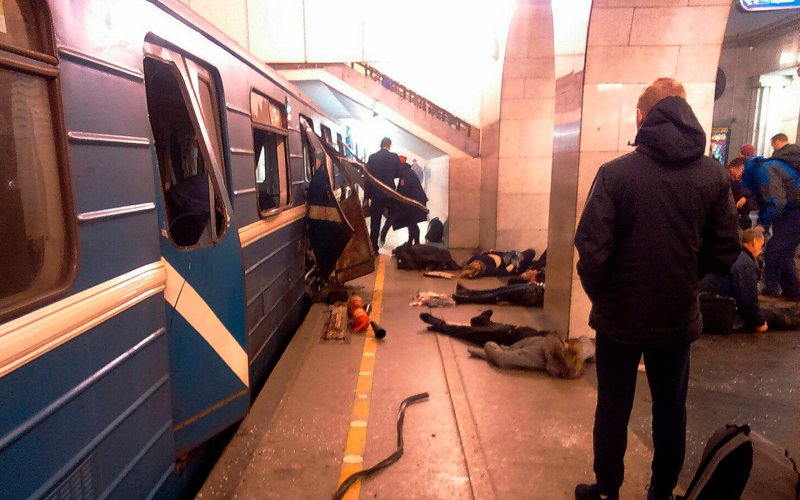St. Petersburg Attack
April 4, 2017 | Expert Insights

How will Russia react to the suicide bombing on home soil?
On the 4th of April 2017, a suicide bomber detonated an explosive on a crowded train in St. Petersburg, Russia. The attack has killed 14 people with over 40 injured.
The attack is the first ever on St. Petersburg’s metro line which transports over 2 million people every day.
After the bomb exploded, Russian police found another set to go off in a nearby station that was concealed as a fire extinguisher and was reported to be far more powerful.
St. Petersburg is the hometown of Russian president, Vladimir Putin.
What was the chain of events and who carried out the attack?
According to Russian officials, a suicide bomber planted the second bomb in one of the busiest metro stations in St. Petersburg then boarded the metro and preceded to detonate himself between the stations. The suicide bomber set off the explosive between the stations of the Sennaya Ploschad and the Tekhnologicheskiy. The second bomb was found at Ploschad Vosstaniya before it exploded. His bomb was contained in a backpack.
The explosion went off at 2:40pm; (11:40 GMT). The explosion tore through the side of the train leaving a huge hole but also trapping the passengers in other compartments who were unable to exit. The metro driver continued the journey to the next station which helped emergency personal on the scene.
Reports are that the suicide bomber was Akbarzhon Jalilov or Akbarjon Djalilov, a Russian passport holder who was born Kyrgyzstan. Kyrgyz officials say that he was born in Osh, 1995. Kyrgyzstan is a majority Muslim country and a known ally of Russia.
Why attack St. Petersburg and who could be behind this?
Reports are coming in from the Kyrgyz government of possible connections between Jalilov and radical groups. He is a Russian national so the ideal target to be radicalized. No terrorist group has claimed responsibility yet.
President Vladimir Putin is a known supporter of Syria’s autocratic ruler Bashar Al-Assad and his support has led to previous attacks on Russian nationals. A plane carrying over 200 people crashed in 2015 after a suicide bomber detonated himself. The attack was claimed by ISIL and recently leaders of the group have been declaring Russia a target.
Russia has squashed the rebels and ISIL by carpet bombing their strongholds ever since their entry into the nation in 2015. They have killed more than 10,000 Syrians and their unwavering support for Assad’s regime makes them a prime target for ISIL and the rebel’s wrath.
Assessment
Russia will most probably highlight the need for their presence in the region after the attacks but it should not hide away from the fact that they are not a peaceful presence and will pay the price for disrupting the inevitable fall of Assad. It is yet to be confirmed who is behind the attack but known adversaries of the Russian state such as the Chechens or Ukrainian insurgents are unlikely. With ISIL losing ground rapidly and the rebels quickly seeing their dreams of a future without Assad perish, the most probable situation is that they’re going after one of the main perpetrators of their plans failing. Putin will possibly take this attack on his home city to heart and has a history of quashing any aggressors against the Russian people.








Comments